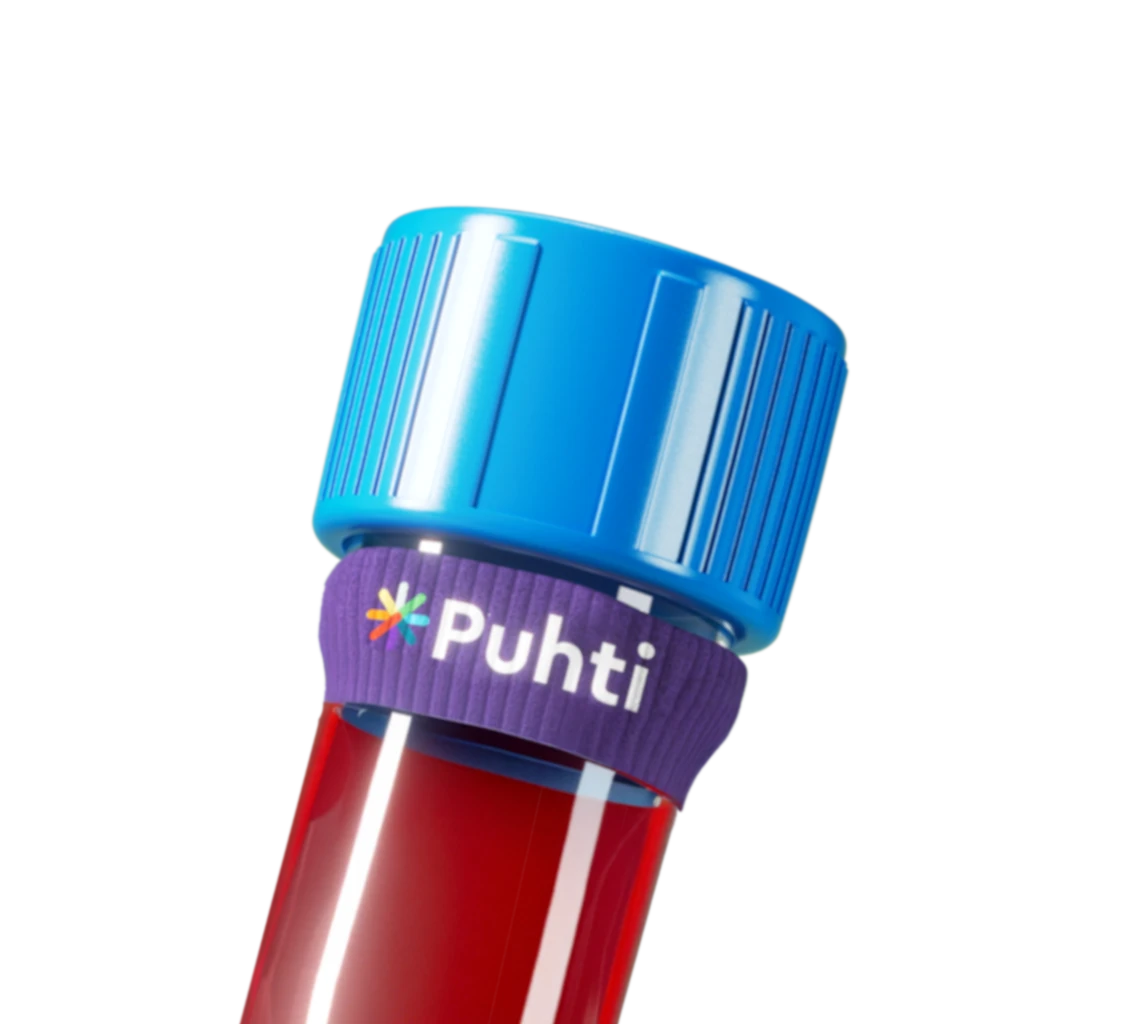
The brain functions with quality nutrition

The brain functions with quality nutrition
The importance of nutrition begins even before birth as the brain is being constructed. Throughout life, we can influence the brain through choices, the food we eat, and lifestyle habits.
The brain and diet in brief
- Many nutritional factors affect memory and thinking.
- Nutrition and our everyday choices impact brain health and alertness.
- It’s important to ensure adequate intake of vitamin D, iron, and vitamin B12, as well as a plentiful amount of vegetables.
The human brain
The brain consists of the right and left hemispheres. In addition, the brain includes the cerebellum and brainstem. Both hemispheres are divided into four lobes: frontal, temporal, parietal, and occipital lobes.
Functions of the brain
The human brain is unique. It regulates the functioning of the entire body. The brain sustains life, facilitates interaction, conveys information about the environment through the senses, and guides actions based on sensory information. It also influences personality, behavior, and emotions. The brain affects mental functions, memory, and communication.
Brain health and nutrition
The brain functions with quality nutrition. The importance of nutrition begins even before birth as the brain is being constructed. Throughout life, we can influence the brain through choices, the food we eat, and lifestyle habits.
Western nutrition plays a role in lifestyle diseases (such as diabetes and cardiovascular diseases) as well as brain degenerative diseases, memory disorders (such as Alzheimer’s disease), and mood problems. Dietary choices can influence brain health, particularly preventively.
It’s never too late to start influencing brain well-being. New neurons and neural connections are formed even in old age. This is influenced by exercise, stimuli, and nutrition!
Mental and brain well-being
Nutrition affects not only thinking and cognitive abilities but also mood. Nutrition plays a significant role in preventing depression, according to current knowledge. So, what should you choose for your plate?
What the brain needs: essential nutrients for the brain
Proteins, carbohydrates, and fats in nutrition can influence memory, learning ability, thinking, mental well-being, and mood. In addition to the quality of energy nutrients, vitamins, trace elements, and antioxidants can affect brain health.
Vitamin D deficiency affects many
Vitamin D deficiency can be associated with low mood, fatigue, and mood decline. Vitamin D deficiency, among other things, weakens peripheral circulation, raises blood pressure, and hinders oxygen supply to the brain.
Vitamin D is mainly obtained from the sun, but also somewhat from fish, for example. A large portion of Finns have a deficiency in vitamin D. At least during winter, it is needed from a supplement due to the darkness. Measuring vitamin D levels is recommended for everyone, considering the seasons.
You can access vitamin D test (as well as other tests) through Puhti without a referral.
Vitamin B12 is important for the nervous system and thinking
Vitamin B12 is important for the nervous system. Its deficiency can cause muscle weakness and affect thinking and concentration. Symptoms may appear years after the deficiency.
Vitamin B12 deficiency is common in the elderly and those following a vegetarian diet, as it is only obtained from animal-based foods. Taking vitamin B12 as a supplement is essential for vegans.
Vitamin B12 test (B12-TC2) is included in many Puhti test packages.
Iron deficiency anemia can cause fatigue, slow thinking, and concentration problems
One of iron’s most important functions is transporting oxygen to organs like the heart and muscles. Iron is essential to obtain from the diet. If there is not enough iron, the situation can lead to anemia. Iron deficiency anemia can cause various symptoms, such as nervousness, slow thinking, and poor concentration.
Iron deficiency can be easily assessed with blood tests. Ferritin is the primary indicator of iron deficiency. Explore Puhti’s Iron Deficiency Test Package.
Maintain stable blood sugar levels
Favor slow carbohydrates that provide the brain with steady energy. Sugar and other fast carbohydrates cause a spike in blood sugar. Instead, fiber-rich vegetables and other slow carbohydrates in a diverse meal help keep blood sugar stable.
Frequently and persistently elevated blood sugar can harm blood vessel walls, reducing blood flow to the brain and causing silent inflammation, which in turn damages neurons. Increased memory disorders are often associated with excessive sugar consumption and other fast carbohydrates.
The brain needs fats, but choose fats wisely
The brain is mainly composed of fat. The brain needs fat from the diet. The quality of fat is very important for health. Good choices are liquid vegetable fats and, for example, fish fat and omega-3 fats.
Consume antioxidants – favor colorful vegetables
Antioxidants prevent harmful oxidation of other substances. Free oxygen radicals are constantly produced in the body, causing oxidative stress, i.e., oxidation of fats, proteins, and fat-soluble vitamins. This is related to the development of many diseases (such as brain degenerative diseases, chronic inflammation, cardiovascular diseases).
The brain needs plenty of antioxidants. Colorful plant-based food contains a lot of antioxidants. Fill your plate with domestic berries, fruits, and dark-colored vegetables – in all colors!
Tips for brain well-being
Diet and nourishing the brain are important, but also remember outdoor activities, sleep, exercise, and relationships.
In addition to diet, don’t forget other lifestyle habits. Fresh air, regular outdoor activities, exercise, and quality sleep are also very important for the brain. Cherish relationships and meaningful hobbies as a counterbalance to work and stress.
The brain enjoys all kinds of exercise, rest, sleep, breaks, social interaction, closeness, laughter, meditation, music, and silence.
The brain also benefits from conscious presence, crafts, hobbies, nature, and outdoor activities, as well as a sufficiently stress-free, relaxed lifestyle.
For many, this may mean simultaneously slowing down, focusing on recovery, and changing lifestyle habits. Diverse exercise, rest, and good food, in good company, of course.
How does stress affect the brain?
Stress, in small amounts, is the factor that makes us act. In large amounts and when it becomes chronic, stress negatively affects health. The effects of stress are both physical and psychological.
Excessive stress can, for example:
- reduce concentration ability
- lower mood
- increase worries
- reduce work ability.
Stress management, i.e., concrete ways to reduce stress, is important for overall well-being and endurance.
How to access tests?
Through Puhti, you can access all tests without a doctor’s referral.
Explore, for example, the following tests and test packages:
- Iron deficiency test package
- Vitamin D and ferritin
- Vitamin D
- Ferritin
- Vitamin B12
- Puhti laboratory package
Puhti’s result service helps to notice deviations and changes in health measurements. You can usually view the results the next day on the My journal page. You can see all the results clearly as bars on the report. You can easily see if your values are within reference values. You also learn what different values mean and how you can influence them.
After the test, you can separately order a doctor’s remote consultation directly from Puhti’s result report if you want to discuss your health.




